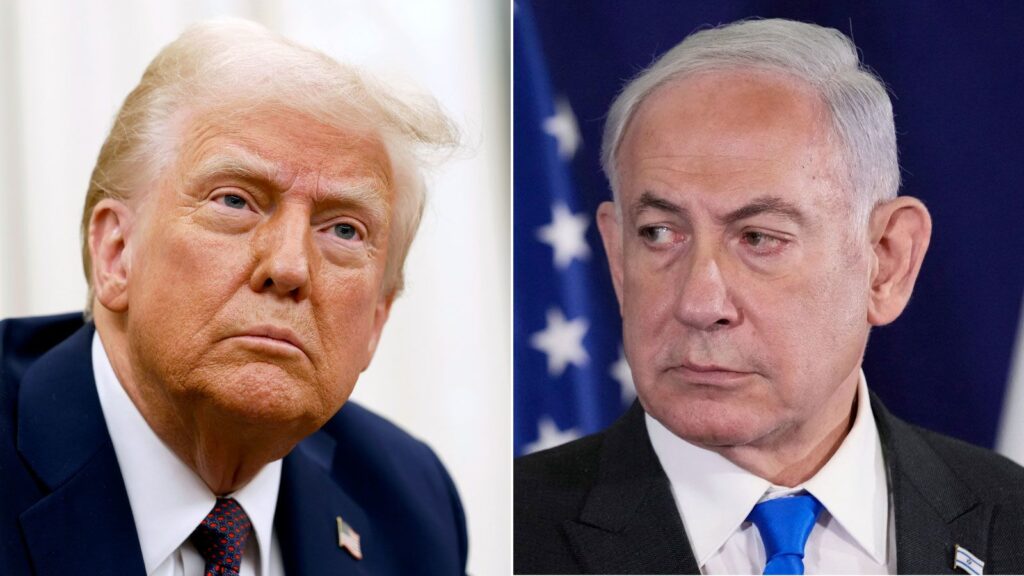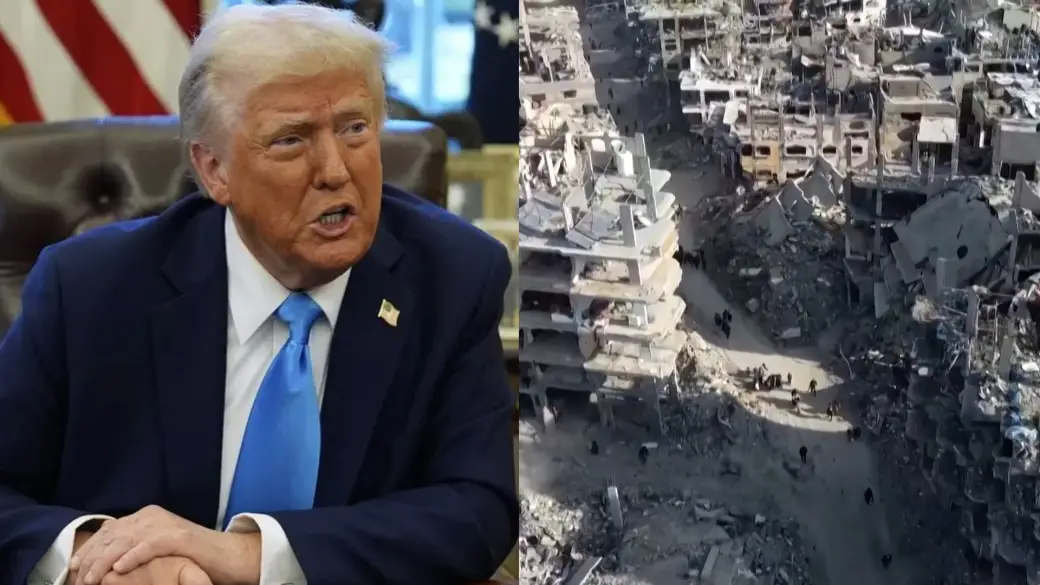In a strong rebuke to President Donald Trump’s controversial proposal to take over Gaza, Palestinian officials, Arab states, and international organizations have expressed firm opposition, warning against forced displacement and ethnic cleansing of the region’s population.
The Palestinian President Mahmoud Abbas described Trump’s idea of relocating Gaza’s 2.1 million Palestinian residents as an infringement on Palestinian rights, calling Gaza an integral part of the State of Palestine. “We will not allow the rights of our people to be infringed upon,” Abbas said, emphasizing that the forced displacement of Palestinians would be a serious violation of international law.

This rejection was echoed by several countries in the Middle East, including Saudi Arabia, Jordan, and Egypt, all of which dismissed the plan as a dangerous precedent.
Saudi Arabia reaffirmed that Palestinians would not be forced to leave their land, with the kingdom insisting that normalization with Israel could not occur without the establishment of a Palestinian state.
International Criticism and UN Concerns
The United Nations raised alarms about the potential for ethnic cleansing in the region. UN Secretary-General Antonio Guterres urged the international community to reject any plan that could lead to the forced displacement of Palestinians, stressing that Gaza is an essential part of a future Palestinian state.
He added that the rights of Palestinians to live on their land are increasingly under threat. “The world has seen a chilling, systematic dehumanization and demonization of an entire people,” Guterres stated at a meeting in New York.
Many Western leaders also expressed concern over the implications of Trump’s proposal, with France and the UK calling it a violation of international law.
UK Prime Minister Sir Keir Starmer remarked that Palestinians must be allowed to return to their homeland and rebuild their communities, supporting the path to a two-state solution.
Trump’s Vision: A “Riviera of the Middle East”
President Trump, speaking with Israeli Prime Minister Benjamin Netanyahu, suggested the US would take control of Gaza and oversee its rebuilding. In his remarks, Trump outlined his vision of transforming Gaza into “the Riviera of the Middle East,” proposing that the Palestinian population would be relocated to Jordan, Egypt, and other countries.
Trump dismissed earlier objections from both Jordan and Egypt about hosting Palestinian refugees, insisting that these countries would “eventually open their hearts” to the proposal.
However, Trump’s plan of permanent displacement was met with immediate backlash, with Hamas labeling the proposal as an occupation of Gaza and warning that it would only escalate tensions in the region.
Palestinian Defiance Amid Destruction
For many Palestinians in Gaza, Trump’s comments were an affront to their identity and resistance. A Palestinian man in Gaza said, “We would rather die in Gaza than leave it. We will stay here until we rebuild it. Trump can do as he pleases, but we firmly reject his decisions.”
The people of Gaza, who have suffered immensely due to the ongoing conflict, are unwilling to abandon their land, despite the severe humanitarian conditions.
Nearly 70% of Gaza’s buildings are damaged or destroyed, and there are widespread shortages of food, medicine, and shelter.
Over 47,000 people have been killed, and more than 111,000 injured in the conflict.
Regional and Global Rejection
Key Arab nations, including Saudi Arabia, Egypt, and Jordan, have firmly rejected any proposal that involves the displacement of Palestinians.
Egypt’s foreign minister stressed that recovery projects for Gaza should move forward without requiring Palestinians to leave.
Turkey called the idea “absurd,” further adding to the international condemnation.
Israel’s Prime Minister Netanyahu expressed some support for Trump’s approach, particularly in the aspect of allowing Gazans to relocate if they choose. However, many critics view this as an attempt to permanently alter the region’s demographic composition and undermine the prospects for a peaceful resolution based on a two-state solution.
A Violation of International Law?
The Palestinian mission to the UK denounced the proposal as an act of ethnic cleansing, labeling it immoral, illegal, and dangerous. Husam Zomlot, the head of the Palestinian mission, said, “This is a call for the forced displacement and expulsion of a people from their native land.”
While Trump’s plan remains controversial and faces widespread rejection, it has ignited intense debate about the future of Gaza and the rights of Palestinians.
The call for a Palestinian state with full rights to their land remains a critical aspect of peace efforts in the region.
Trump’s proposal to take over Gaza and forcibly relocate its population has sparked a global outcry, with Palestinian leaders, Arab states, and international organizations condemning the plan as an unlawful violation of Palestinian rights. With Gaza’s population remaining steadfast in their demand for justice and self-determination, the path to peace and stability in the region remains uncertain.
The international community is now left grappling with how best to address the longstanding conflict and ensure that Palestinians are allowed to live with dignity in their homeland.

